
Alphabetical Menu
Chronological Menu
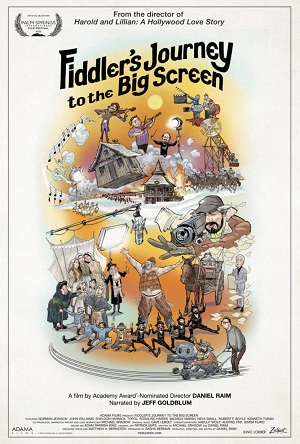
Fiddler's Journey to the Big Screen is a fascinating behind-the-scenes glimpse of the 1971 classic film Fiddler on the Roof. Director Daniel Raim also includes the added bonus of providing the audience with a brief documentary portrait of the film's director, Norman Jewison. There's just the right balance of interviews with Norman Jewison and some of the actresses from Fiddler on the Roof, and archival interviews with the legendary Chaim Topol along with plenty of clips from the film. Michele Marsh, who played Hodel, Neva Small, who played Chava, and Rosalind Harris, who played Tzeitel, explain in vivid detail their experiences on the set and what it was like to work with Norman Jewison. You can palpably feel how much they're proud of their work, as they should be, and how years later, they're still recognized and appreciated for playing those iconic roles. Like the documentary Fiddler: A Miracle of Miracles from 2019, Fiddler's Journey to the Big Screen also sheds light on the legacy of Fiddler on the Roof and what makes it so universal, but with access to many more interviews, archival and contemporary, which makes it more thorough. You'll not only learn that the film became a huge hit in Japan, but also learn why. You'll also learn from Norman Jewison how Israel's Prime Minister Golda Meir reacted to watching Fiddler on the Roof while she sat beside him at a screening, which won't be spoiled here. Fortunately, the interviews are concurrently revealing, and even witty and amusing at times. Director Daniel Raim clearly understands the importance of including interesting details as well as stepping back and looking at the bigger picture to help the audience to understand the significance of those details. The well-chosen clips will tempt you to re-watch Fiddler on the Roof with new perspective after hearing all of the struggles that went on behind the scenes and the way that Jewison found solutions to those issues with the help of cinematographer Oswald Morris and production designer Robert F. Boyle. Composer John Williams also gets a chance to provide some of his insights. This isn't one of those dull and pedestrian "making of" documentaries that you find on the bonus features of DVDs. At an ideal running time of just 1 hour and 28 minutes, Fiddler's Journey to the Big Screen a captivating, illuminating and well-edited documentary. You won't look at Fiddler on the Roof the same way again. 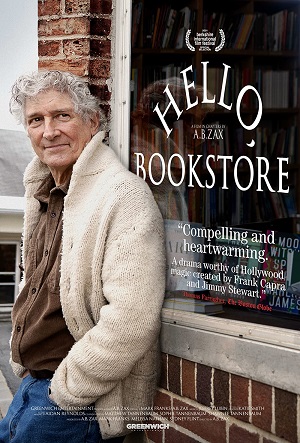
Hello, Bookstore is a mildly engaging documentary about an independent bookstore located in Lenox, Massachusetts called The Bookstore. Director A.B. Zax mostly focuses on the struggles of the store's owner, Matt Tannenbaum, of keeping The Bookstore open during the pandemic with a glimpse of what the store was like before the pandemic. Tannenbaum comes across as laid-back, warm and charming, much like the film itself, as well as friendly. He greets people who call him with "Hello, Bookstore" which is where the doc gets its title from. When his bills start to pile up, he might lose the store if he can't find the money to pay them, so he turns to crowdfunding as a solution. Hello, Bookstore works as a fine introduction to The Bookstore and to its owner, but director A.B. Zax doesn't go deep enough when it comes to exploring its themes that it barely scratches the surface of. It also feels too narrow in scope unlike the much more insightful documentary The Booksellers which broadens the scope to the issue that's the elephant in this documentary's room: how the number of small bookstores has been waning throughout the years. Matt Tannenbaum's passion for books is palpable, so if you're a book lover, you'll appreciate Hello, Bookstore the most. At a brief running time of 1 hour and 26 minutes, it's warm and breezy, but not profound or provocative enough. It opens at Film Forum via Greenwich Entertainment.
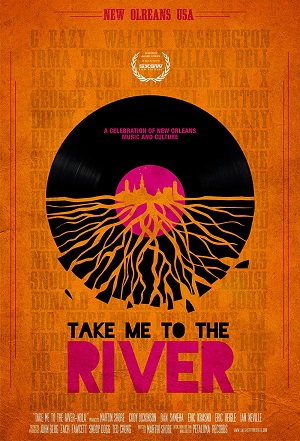
In Take Me to the River: New Orleans, director Martin Shore combines the musicians from the past and present who record their music together in a studio. The musicians include The Meters, Fats Domino, Allen Toussaint, Dumpstaphunk, G-Eazy, Snoop Dogg, Ledisi and Irma Thomas, among others. It's a moving experience to watch the newer, modern musicians collaborate with older, legendary ones. That idea alone makes this doc worth seeing. There's also a little insight about the history of New Orlean's music and the effects of Hurricane Katrina. The music speaks for itself, and there's plenty of it, so you can sit back, relax and enjoy listening to it. You can feel the genuine passion of the musicians as you watch them perform. Although Take Me to the River: New Orleans isn't as powerful as Summer of Soul or Standing in the Shadows of Motown, it's nonetheless an exhilarating tribute to the music of New Orleans. It would make an interesting double feature with the upcoming doc Jazz Fest: A New Orleans Story. At a running time of 1 hour and 50 minutes, Take to the River: New Orleans opens at Alamo Drafthouse in Downtown Manhattan via 360 Distribution. Africa  68-year-old Meir (Meir Gerner) spends his retirement in a community in Israel with his wife, Maya (Maya Gerner), a therapist. He's no longer in charge of planning an annual ceremony which he had planned every year for the past three decades after teenagers replaced him. He decides to spend his time at his workshop building beds for his family members instead. Meanwhile, his doctor informs him that he has to reduce his stress because he has heart problems. Africa is a coming-of-age story. Meir has to deal with unexpected changes in his life as he has to come to terms with getting older. Like a teenager, he still has a lot of growing up to do. He seems like a bit of a narcissist who shows little restraint toward others, including teenagers whom he looks down upon. He doesn't take responsibility for his own actions or faults and he even goes to the extent of lying to feel better about himself. For example, he doesn't tell Maya that he was let go from his job in the community's annual ceremony. He tells her that he'll be too busy working on the beds that he needs to construct. After he receives the bad news about his heart's health from his doctor, he lies to his wife that everything is okay when she asks him what the doctor said. He comes across as immature, insecure and selfish. Maya is a therapist, so you would think that she would know better than to be around someone who's so toxic and who doesn't want to see a therapist to deal with his issues. Meir's flaws make him more interesting as a character and, most importantly, more human, but there's not much of a character arc for him. It's not very clear whether Meir has really changed on the inside by the third act, but at least he does change the way he looks at life. That's an important step for maturing. However, is he introspective? Is he honest with himself? Is he capable of acknowledging his actions and the consequences of his actions? That's not very clear either. He seems to wear many masks, like a true narcissist, while trying his best to appear to others as though he were strong. Little does he seem to know that decency, honesty and empathy are strengths. Lying and crossing other people's boundaries are weaknesses, i.e when he interrupts one of Maya's therapy sessions because he's angry that someone stole his wood boards for the beds. He doesn't even apologize to Maya. Worst of all, he also lets out his rage on his German Shepherd, Tsila, after he nearly poisoned her to death. At least he confesses that to his wife, but, oddly, she's not mad at him. Is she mad at him, but bottling her anger? How is she not enabling him by not being mad at him or at least firm with him? More of Maya's perspective would've been helpful to answer those essential questions. Fortunately, writer/director Oren Gerner doesn't paint Meir in a way that's completely unlikable. There are some quiet moments of nuance throughout the film which are quite moving which show the tender and vulnerable side of Meir. The way that Meir interacts with his grandson, Guli, outdoors is sweet, but then there's a scene indoors when Guli interviews him for a school project which Guli had to remind him about because he forgot. His interview with Guli lasts barely a few minutes, and you can see how hurt, vulnerable and sad Meir feels that it ended so abruptly. Like a child, he doesn't quite have the emotional maturity to know what to do with his feelings. Nor does Africa have any solutions to Meir's many problems. Perhaps like in life itself, sometimes people don't really change. Meir Gerner gives a natural performance as does Maya Gerner. Both of them are the parents of writer/director Oren Gerner who has a small role in the film. Everyone on screen looks and acts like ordinary, human beings. There's nothing too showy or stylish about the cinematography or editing which is fine, although there's one beautifully shot scene where Meir and Maya are both talking to each other from different rooms which almost looks like a split-screen to the audience. The way the scene is shot reflects the emotional distance between the married couple. Why is the film called Africa, you ask? It has something to do with a happier time when Meir and Maya took a trip to see the wildlife of Namibia. Instead of using flashbacks, writer/director Oren Gerber shows that through home videos that Meir and Maya watch while commenting on it. Their life is much sadder now, but the film doesn't really dig deeply enough beneath the surface; it just shows some glimpses of those depths. If only Africa were unafraid to go darker during the third act with the consequences of Meir's actions, i.e. by delving deeper into the rifts in his marriage, it would've been as unflinching and honest as Ordinary People or 45 Years. That said, it's refreshing to watch a nuanced, quietly moving Israeli neorealist film in the vein of Gianni Di Gregorio's The Salt of Life and Mid-August Lunch. 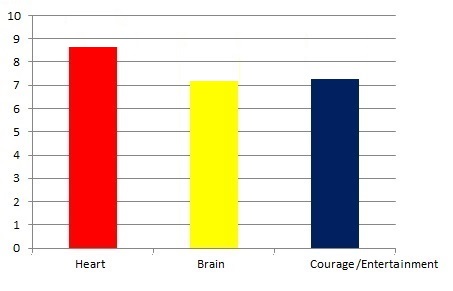 Black Box 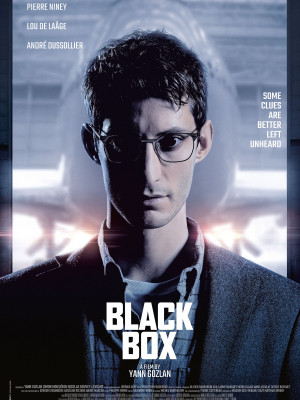
Matthieu (Pierre Niney), a black box analyst, investigates the cause of a commercial plane that crashed on its way to Paris from Dubai. He suspects that there's a cover-up of the true cause of the crash. The more he takes a closer look at the audio from the black box and raises questions about it, , the more he realizes that there could be a conspiracy behind the crash that puts both his career and his life in danger. Even if wife, Noémie (Lou de Laâge), doesn't believe him right away. Black Box is just as gripping and almost a dark as the paranoid thrillers from the 1970's like The Parallax View 3 Days of the Condor and All the President's Men. The screenplay by writer/director Yann Gozlan and co-writers Nicolas Bouver and Simon Moutairou escalates the tension gradually as the audience learns as much information about the crash as Matthieu does. That makes it easier for the audience to be there with him for the ride which gets increasingly darker and complex. Exposition isn't something that's easy to incorporate, but the screenwriters manage to do so in a way that keeps you captivated. You're confused when Mattheiu feels confused. You're suspicious when he's suspicious. You're surprised when he's surprised. The twists and turns make for an intense experience with just as much paranoia as in Arlington Road. Like Michael Faraday in Arlington Road, Matthieu becomes increasingly isolated as the plot progresses. No one believes his suspicions, and he even lose his credibility when he turned out to be wrong about one of his suspicions. Whom can he trust? Is his wife part of the conspiracy? Will someone kill her or someone else connected to Matthieu? Will someone kill Matthieu? The answers to those questions won't be spoiled here. It's worth mentioning, though, that you'll be at the edge of your seat from start to finish and that the plot twists work even in hindsight. The ending isn't as bold or as bitter as Arlington Road and The Parallax View's endings, but it comes close. Pierre Niney is very well-cast as the charismatic lead. He handles the emotional complexities of his role very convincingly while bringin poignancy and nuance to the role as well. Some of his best scenes are the ones when Mattheiu bickers with his wife, played by the Lou de Laâge who's also superb, although she doesn't get nearly enough screen time. The always-reliable André Dussollier adds some gravitas to his small, but important role as one of Mattheiu's superiors. The cinematography is pretty solid while the terrific sound design serves an important role in the film---it almost becomes a character in itself. At a running time of 2 hours and 9 minutes, Black Box is an intelligent, gripping and suspenseful paranoid thriller with shades of Alan J. Pakula. Hatching 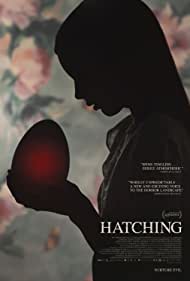 Tinja (Siiri Solalinna), a 12-year-old gymnast, lives with her perfectionaist mom (Sophia Heikkilä), father (Jani Volanen) and younger brother, Matias (Oiva Ollila). One day, she kills an injured crow in the woods, discovers an egg in a nest, decides to take the egg, and hides it in her room. When the egg hatches, a giant, mysterious, hideous-looking bird hatches and soon mimics Tinja's behavior. Hatching serves as a creepy horror film as well as a portrait of a dysfunctional family. Tinja's mother is reminsicent of the mother in Black Swan because she pushes her daughter to work hard and makes her suffer in the process. Tinja doesn't really enjoy being a gymnast, but her mother doesn't seem to pay any attention to her emotional needs. All her mother cares about is her perfect image which she records for her blog. Clearly, Tinja's mother has a personality disorder that compels her to create a false illusion of happiness. She's as much of a monster, if not more, than the creature that hatches from the egg. What happens after the hatching won't be spoiled here, but it should be noted that Ilja Rautsi takes the concept into a very provocative direction that has shades of Cronenberg, Stephen King and even Edgar Allan Poe. It doesn't quite reach the brilliant heights of Pan's Labyrinth, although, to be fair, that's high bar to rise above. Hatching remains dark, intense and suspenseful on a visceral as well as psychological level. Siiri Solalinna gives an impressively moving performance as Tinja. It's compelling to watch Tinja interacting with the creature and even surprisingly poignant at times, especially if you see Hatching as a poetic allegory. Both Tinja and the creature bond over their loneliness and sadness. In terms of the visual effects and the design of the creature itself, that's another strength of the film. It looks absolutely ugly and disgusting. Director Hanna Bergholm doesn't hold back with the horror element and includes some gore as well, but not too much. The ending, which won't be spoiled here, is quite bold and even more scary that you can imagine while leaving a bitter aftertaste, so this is definitely a horror film for adults. At a running time of only 1 hour and 27 minutes, Hatching is genuinely terrifying, creepy and provocative. It would make for an interesting double feature with Dual. 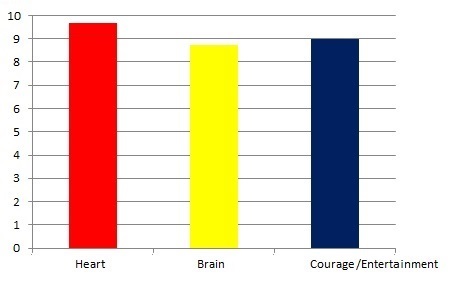 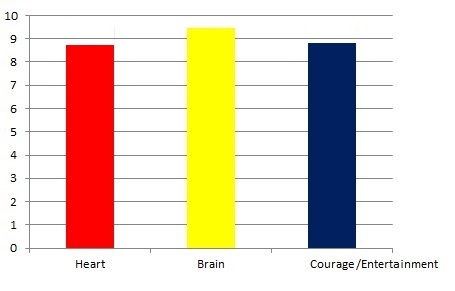 Los Conductos 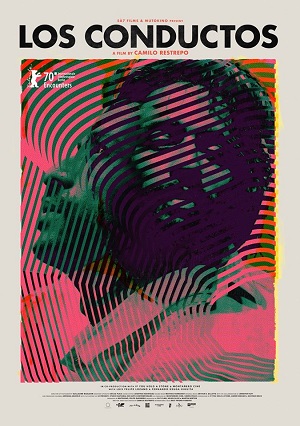 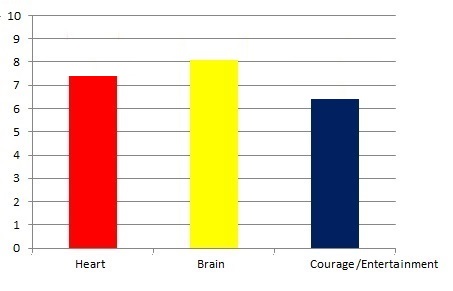 Memory 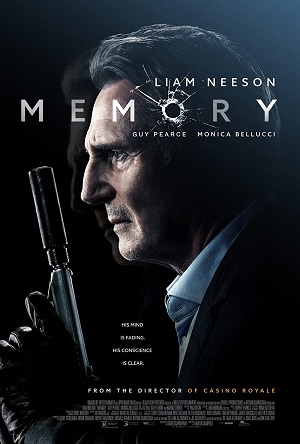 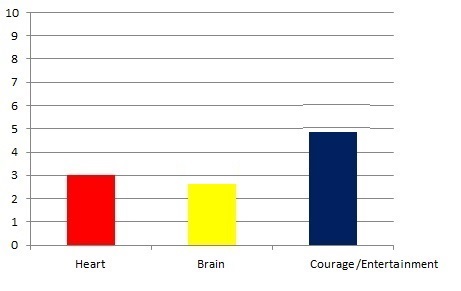 Pompo: The Cinephile 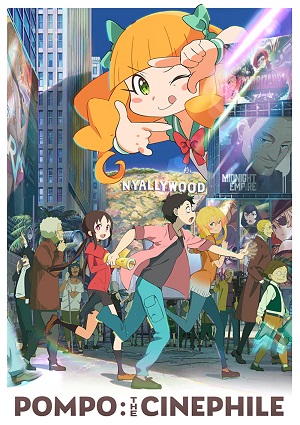 Gene (voice of Hiroya Shimizu) works as an assistant for a producer, Pompo (voice of Konomi Kohara), who heads a major studio in Nyallywood. Pompo usually produces B-movie, but now she wants to make an A-movie called Maestro. She hires Natalie (voice of Rinka Otani) to star in it along with a legendary actor, Martin Braddock (voice of Akio Ohtsuka), who hasn't performed in a movie in two decades. Gene agrees to direct it even though he's inexperienced in directing movies. The production shoot doesn't go as smoothly as he planned. The screenplay by writer/director Takayuki Hirao isn't as biting or brilliant as other Hollywood satires, but it's nonetheless witty, heartfelt and highly entertaining. Despite the film's title, Pompo: The Cinephile is mostly about Gene and his struggles to direct his first feature length film. Pompo states from the get-go that she believes that all it takes to make a great movie is to have a good-looking actress and for it to be no more than 90 minutes long. Her aversion to long movies comes from the fact that she couldn't stand watching lengthy movies with her grandfather during her childhood. It's little details like that which help to bring the characters to life. Gene has a passion for movies as well and knows how to edit them, but he has a lot of learning to do during his first directing job. Pompo: The Cinephile shows Gene's experiences during pre-production, production and post-production. It even includes his frustrations to cut a teaser trailer which only lasts about 10 seconds. The production itself, set on a mountainside, doesn't go as planned when the weather doesn't cooperate with them, but the way that Gene finds a solution to one of his problems is both clever and amusing. He also learns how to deal with actors, an important lesson to learn. The film's minor weakness is when it comes to how Gene gets financial backing for his film which happens in a way that's more like a Hollywood fairytale than reality. It's one of those scenes that feels like a dream sequence that Gene will wake up from all-of-a-sudden. As an anime film, Pompo: The Cinephile looks dazzling with plenty of colors and a few breathtaking shots during the production of Gene's film. The pace moves along briskly, but not too fast like with some other anime films. That said, it's not leisurely paced either like some of Miyazaki's great films, and it crams a lot of ideas within the 90-minute running time without exploring them very deeply. It's not as clever and bold as State and Main nor as funny as Bowfinger nor as moving as Cinema Paradiso which it references. Ultimately, Pompo: The Cinephile is a pleasant, lively and engaging diversion. 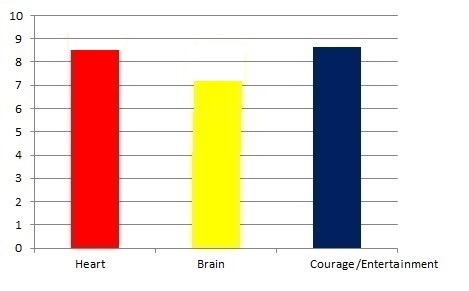 The Sound of Violet 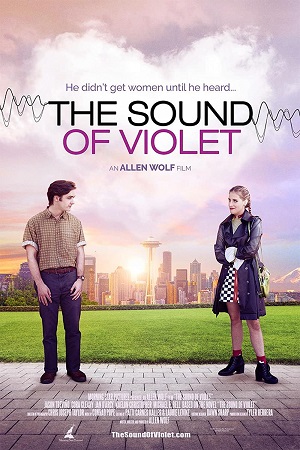 Shawn (Cason Thomas), an autistic young man, meets Violet (Cora Cleary) at a party with a "Pimps and Hoes" theme and agrees to pay her to go out with him. Little does he know that she's actually a hooker. She gaslights him on their first date by dragging him along to auditions, but those "auditions" are the meetings with clients whom she sleeps with. Colin (Kaelon Christopher), Shawn's older brother, and his loving grandmother, Ruth (Jan D’Arcy), try in vain to convince him that Violet is a hooker and to stay away from her. He doesn't listen to them, continues to date her and, very soon, marries her behind his family's back. The screenplay by writer/director Allen Wolf, based on his novel of the same name, falls flat both as a romance and as a comedy. A truly great romantic comedy remains grounded in realism and authenticity, but very little feels authentic in The Sound of Violet. Wolf introduces Shawn to the audience as someone who's yearning for love while struggling to find a date who wants to be around him after learning that he's autistic. Violet seems nice to him, so he settles for her. It turns out that she's a hooker with a heart of gold. Their romance, though, feels hackneyed, cheesy and contrived from the very beginning. Then they suddenly get married and the film becomes even more of a clunky mess. Of course, there's a subplot involving Violet's pimp. The dialogue is often as cheesy as the dialogue in most Nicholas Sparks movies. There's probably a dark, deeper movie in The Sound of Violet, but Wolf barely even scratches the surface or tries to get inside any of the character's heads. That makes it a rather emotionally uninvolving and dull experience. Most importantly, it makes it hard for the audience to care whether or not Shawn ends up with Violet. Despite decent performances by newcomers Cason Thomas and Cora Cleary, neither of their characters come to life. They deserve much better material because with the weak, shallow screenplay, they don't have enough of a window to portray Shawn and Violet's heart, mind and soul. Both Shawn and Violet are human beings, so it's hard to watch how writer/director Allen Wolf doesn't manage to see and treat them as fully-fleshed human beings with an inner life. Even Pretty Woman, which is hard to not compare this film to, has more heart and soul to it. It's every bit as contrived and hackneyed as The Sound of Violet, but at least the romance between the leads exudes palpable chemistry which isn't the case here. At a running time of 1 hour and 47 minutes, The Sound of Violet is clunky, contrived and so saccharine that it could end up giving you a cavity. 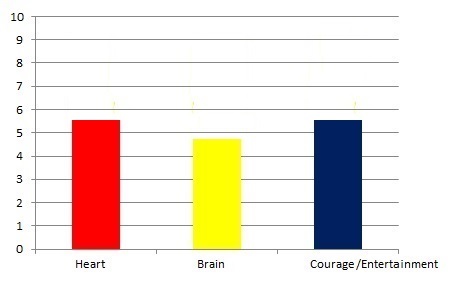 Vortex  A husband (Dario Argento) lives his wife (Françoise Lebrun) in a dilapidated apartment. He suffers from a heart condition while she battles dementia. Their son, Stéphane (Alex Lutz), a drug addict, visits them to try to convince them to go to an assisted living facility. As Hitchcock once wisely observed, some movies are a slice-of-cake while others a slice-of-life. Vortex is very much a slice-of-life albeit one that's toward a tragic stage of a husband and wife's life. The plot, if you want to even call it that, has very little going on on the surface, but a lot goes on beneath the surface and in the husband and wife's backstories. Writer/director Gaspar Noé has been known for making intense movies with explicit sex and violence like Irreversible, Love and Enter the Void. With Vortex, he goes for explicit, unflinching emotional grit without any sugar-coating. He depicts old age and dementia in a way that's honest even though it's difficult to watch. If you're having a hard time watching people suffering, that means you have a heart, mind, soul and, above all, a conscience. There's very little enjoyable about Vortex, but that's part of the point. Life isn't always easy. We all grow old. Noé doesn't ask you to judge the husband and wife or their son for that matter. He's not asking you to pity them, either. Instead, he's asking you to see them as flawed human beings who are going through a tough time while dealing with a lot of emotional baggage. The way that Noé incorporates their backstory for exposition feels very organic as does that dialogue. There's very little levity, though, but to be fair, such a harrowing subject matter is hard to balance with comic relief. The film remains focused on the husband, wife and their son without flashbacks. Concurrently, you, as an audience member represent the fourth character because you're observing these people like a voyeur. That means that how you view them depends on your own life experiences, your emotional maturity, and your own projections based on that. Many scenes feel emotionally resonating, but there's one particularly powerful one when Stéphane sits down with his mother and father to try to have a heart-to-heart. If you open up your heart, mind and soul to Vortex, it will end up a very emotionally and spiritually enriching experience. Death, after all, is a part of life, so it's a testament to Gasper Noé courage, emotional generosity and emotional maturity that he looks at both life and death head-on and honestly. Dario Argento, Françoise Lebrun and Alex Lutz each give nuanced, heartfelt and raw performances that ground Vortex even further in authenticity. They breathe life into their roles with the help of the screenplay that provides plenty of opportunities for them to be emotionally naked in front of the camera. That makes their performances brave because emotonal nakedness is far more intimate and revealing than physical nakedness. It's hard to discuss Vortex without mentioning Gaspar Noé's use of the split screen to tell the story. The split screen doesn't occur right away, but gradually in the beginning after he introduces the husband, wife and son to the audience. The stylish opening credits are also worth mentioning. Noé certainly appears to like creative opening credits---see Enter the Void for the best example of that. Fortunately, the film's visual style doesn't get in the way of its substance nor does it become distracting. It actually becomes somewhat poetic, although it does leave it up to the audience to interpret what it means. At a running time of 2 hours and 20 minutes, which actually doesn't feel as long, Vortex is unflinching, genuinely heartfelt and profoundly human. It's just as powerful, emotionally mature and haunting as Mass. 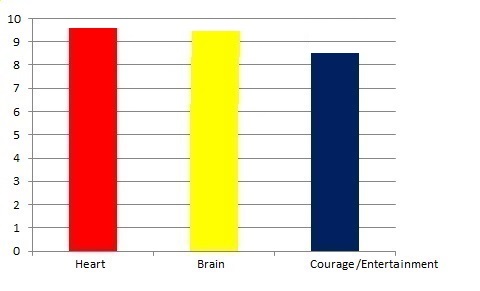 |